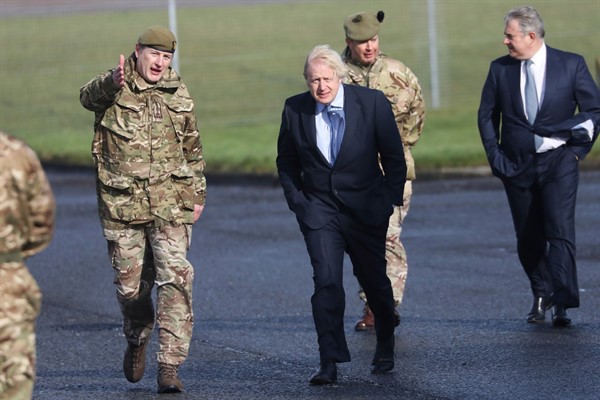In mid-March, the British government released its Integrated Review of Security, Defence, Development and Foreign Policy, titled, “Global Britain in a Competitive Age.” This was followed a week later by a more focused defense review. The two documents represent the end products of an exercise conducted by the government every five years, a combination of stocktaking, horizon-scanning and threat assessment, with some new policy announcements thrown in. This one began in 2020, but its completion was postponed because of the COVID-19 pandemic.
The headlines surrounding the latest review have focused on the announcements that the U.K. would increase the size of its nuclear stockpile and decrease the size of its army. The real interest, however, lies in the review’s broader attempt to reconceptualize what it means to be a middle power in the modern world.
The challenge for Prime Minister Boris Johnson’s government was to explain how the U.K. intended to develop its international role now that it has departed the European Union. Last year was spent in a transitional period while the two sides negotiated the terms of their long-term post-Brexit relationship. That deal was reached at the end of the year, indeed at the very last minute. This spared maximum chaos, but still resulted in a lot of friction, as new regulations and complicated paperwork requirements caused major disruption in British trade with the EU. It also complicated the position of Northern Ireland, particularly with regard to its land border with Ireland, which under the Good Friday Agreement of 1998 is supposed to be open. The Northern Ireland Protocol, which ostensibly resolved this dilemma by instead locating the new customs frontier between Britain and Northern Ireland, has led to contentious trading arrangements.

